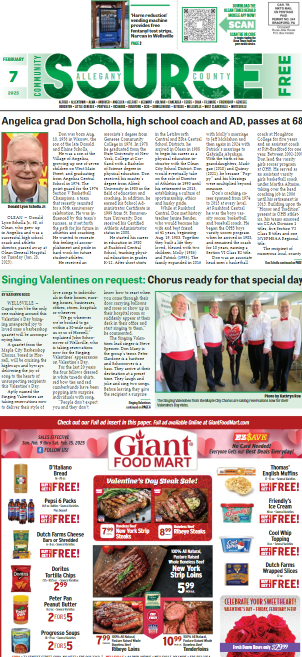Keep police radio transmissions public in New York
Gov. Kathy Hochul should sign a bill on her desk that would preserve access to police radio transmissions for media organizations and first responders. For the media, such access is necessary to report threats to the public in real time, to monitor what police are doing and to hold officers accountable for their actions.
There is a movement among major metropolitan police departments across the country, such as the NYPD, to encrypt all of their communications. This inhibits news gathering and takes away the public’s right to know what their law enforcement agencies are doing.
The New York bill (S416/A3516), sponsored by state Sen. Michael Gianaris, D-Queens, would require police agencies to provide access to encrypted channels to the media and emergency services agencies that depend on them to know what’s happening. The bill makes an exception for communications containing sensitive information.
Police agencies arguing against the bill say that encrypting their radio traffic protects officers and the privacy of victims. It’s not clear to us how police are harmed by public monitoring of their communications. They already use encrypted channels to share information deemed too sensitive for broadcast over the police scanner.
Radio encryption is part of an alarming trend as police agencies clamp down on the information they release to the public. Without access to 911 dispatches, you might never know there was a violent crime or a fire in your neighborhood, a high-speed chase in your community or a police shooting.
For example:
- On Monday, our reporters used 911 transmissions to tell the public what was happening at SUNY Morrisville after a report of a shooting inside South Hall. They gleaned details such as the number of people injured (one), a medevac helicopter called in then called off due to weather, the victim being transported to Upstate University Hospital, the SWAT team dispatched, a suspect seen running from the building, a perimeter established and officers going through buildings. Most of those details were never disclosed by police.
- When a Syracuse police car hit two other cars, ending up on its roof, our reporter heard it on the scanner and got there in time to shoot a photo. The department stonewalled our requests for information for two weeks, until it finally said the officer was speeding at 63 mph to a call. The officer was disciplined and the city later settled a lawsuit from an injured accident victim for $100,000.
- By monitoring radio calls, staff writer Darian Stevenson noticed a shift in police pursuits after the city changed its policy to no longer chase stolen vehicles. She could tell which agencies were still initiating pursuits and which had stopped, illustrating the broader impact of the policy change.
More and more, police release no information at all until our reporters ask about an incident we heard on the scanner or were tipped off to by the public. When law enforcement alone controls the narrative, transparency and accountability can suffer.
Hochul should sign this bill to protect public safety, to safeguard the public’s right to know and to bolster the public’s trust in law enforcement.
— Syracuse.com via TNS






